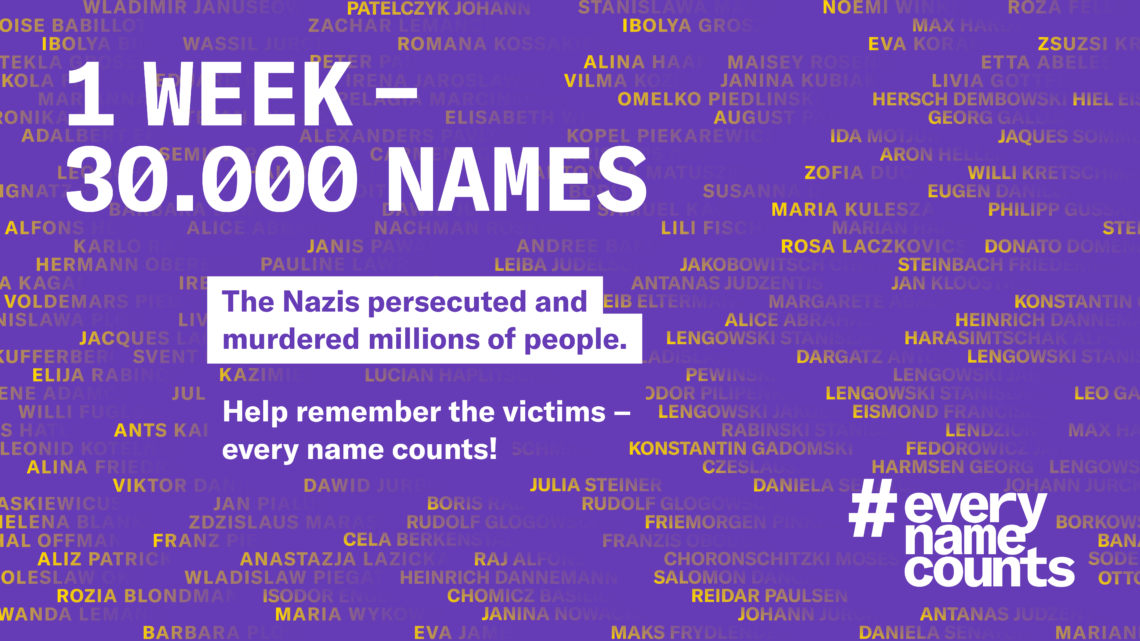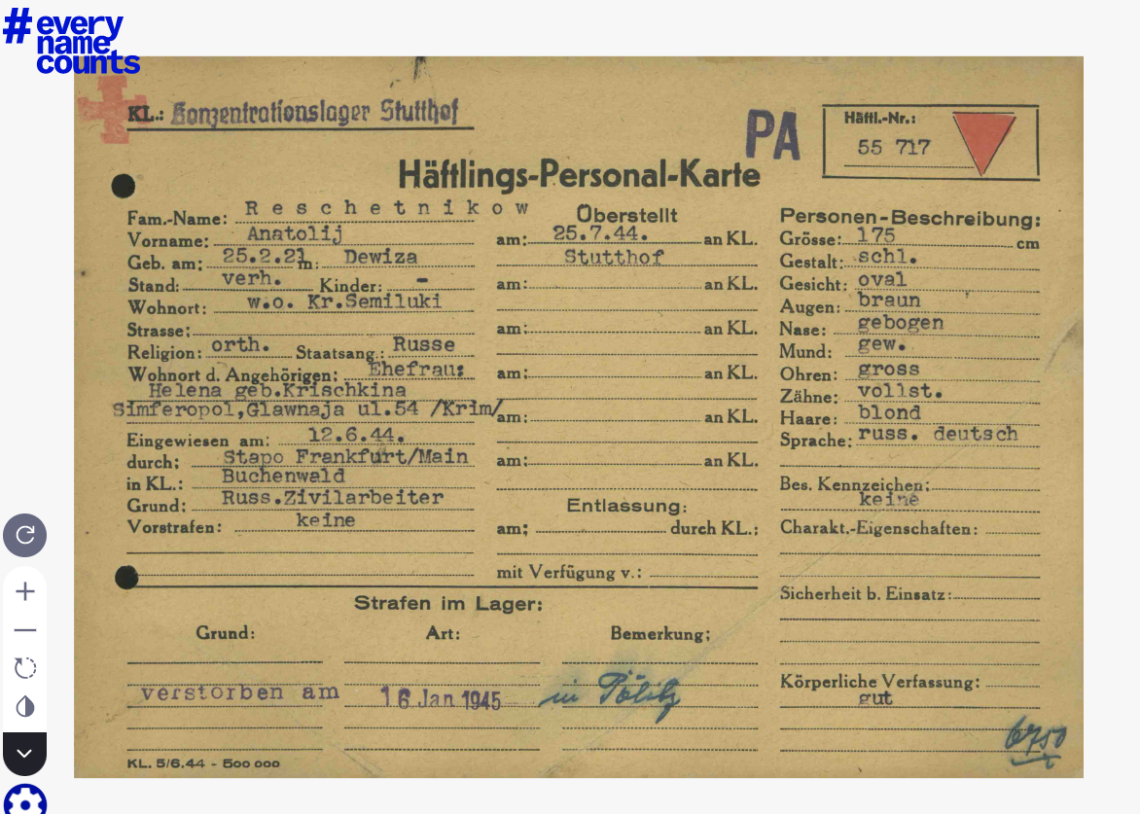Thirty thousand names in one week – #everynamecounts challenge for Holocaust Remembrance Day

To mark International Holocaust Remembrance Day, the Arolsen Archives are inviting people to take part in their #everynamecounts challenge and help digitize 30,000 names in one week.
To make sure the names of people who suffered persecution will never be forgotten, thousands of volunteers are capturing data from historical documents from concentration camps. The #everynamecounts initiative makes it easy for people to show their support and get actively involved. Between January 23 and 29, volunteers will help digitize 30,000 prisoner cards containing information on former prisoners of the Stutthof concentration camp. Their work will contribute to the growth of the world’s largest digital memorial to the victims and survivors of the Nazi era.
Unlike many of the familiar rituals connected with remembrance and commemoration, #everynamecounts provides a very personal way to approach the Nazi period by looking at the fates of individual people. For Floriane Azoulay, the Director of the Arolsen Archives, this is a particularly valuable aspect of the initiative: “Many participants tell us that they feel a very direct connection with the person whose name they’re typing. They have a strong sense of the terrible injustice that was done and they make connections between the past and the present themselves. The reasons for persecution are not a thing of the past!”
Claudia Roth, Germany’s Minister of State for Culture and the Media, is the new patron of #everynamecounts. A number of German and international institutions, schools, and companies are taking part in the 2023 challenge, including the German Federal Archive, the Central Council of Jews in Germany, the Representation of the European Commission in Germany, Reporters without Borders Germany, the U.S. Consulate General Frankfurt, the Jewish Claims Conference, the Memorial Center Srebrenica and Pfizer.
Why focus on documents from the Stutthof concentration camp?
The German occupying forces set up the Stutthof concentration camp in September 1939, just one day after Hitler’s Germany invaded Poland. By the time the camp was liberated, about 110,000 men, women, and children from 28 countries had been imprisoned there – about 65,000 people were murdered there. The conviction of a female stenographer recently attracted attention to the Stutthof concentration camp. Despite the publicity surrounding the belated trial, the camp is not well known to the public. This prompted the Arolsen Archives to choose these documents for #everynamecounts.
#everynamecounts: Looking back and looking forward
- Around 60,000 volunteers from around the world have taken part in #everynamecounts since the spring of 2020.
- All in all, they have processed over six million documents. As the information on each document has to be typed out a three times by three different people to ensure the quality of the data, over two million documents have now been fully digitized.
- The challenge focused on 30,000 documents from the Stutthof concentration camp is taking place from January 23 to 29.
- A brand new, intuitive data entry tool complete with explanatory texts that are easy to understand has now been developed for volunteers to use.
Volunteers can take part in the challenge from January 23 onwards.




